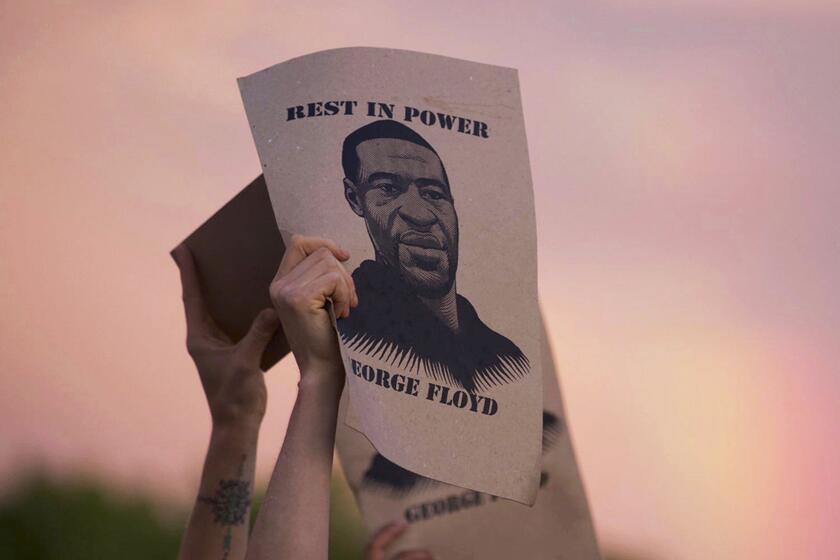We all must condemn the surge in antisemitic attacks
- Share via
The recent military confrontation between Israel and Gaza-based Hamas militants spawned a regrettable yet predictable response: a surge in antisemitic attacks. Yet we all know it doesn’t take a flash of violence in the Middle East for people to give free rein to their hatred. Antisemitism courses through world cultures, and world history, with a distressing persistence, like a virus we can’t vanquish.
Over the last several weeks, vandals have struck synagogues around the country; a mob beat a Jewish man in New York City near dueling protests by pro-Palestinian and pro-Israel groups, while other Jews have suffered random attacks; epithets have been hurled in the streets and social media sites have been filled with antisemitic comments and memes; and swastikas have been scrawled on school walls.
George Floyd’s 2020 death turned a traumatic year into a national self-examination of racism, justice and policing. But what has come of it?
For the record:
11:26 a.m. May 25, 2021An earlier version of this editorial said an antisemitic attack occurred on May 18 at a West Hollywood restaurant. It was a Westside restaurant.
California has seen its share, too. In the most recent high-profile incident, a Banning man was arrested late Friday after Los Angeles police alleged that he was part of a group of people who hurled antisemitic remarks and scuffled with Jewish diners at a Westside sushi restaurant on May 18. More arrests, police say, are expected. Meanwhile, the Anti-Defamation League reported last month a 40% increase in known antisemitic incidents in the state from 2016 to 2020.
People sometimes excuse antisemitism as a lesser outrage because of the unique nature of the targets — people who are, for the most part, white and often lead lives of privilege, which can make it hard for others to recognize them as a victimized minority. But they have been just that sort of minority historically, and they often are in the present. Ethnic slurs and scuffles like those we’ve seen in recent weeks are part of a continuum of hateful action that, on the extreme end, leads to violent death.
Hyperbole? No. Deadly mass shootings in recent years at synagogues in Poway and Pittsburgh and a kosher deli in Jersey City, N.J., were the peaks of sporadic acts of violence against Jews that includes the punching of a Hasidic Jew in Brooklyn last week by a man police say also tried to torch a building housing a synagogue and yeshiva, as well as the slashing attack that wounded five people at a Hanukkah celebration in Rockland County, N.Y., two years ago.
The most vexing aspect of such acts of hatred is their persistence. Even bigots have a right to their soapbox in this country, but we can counter their message by better informing their potential audience. Experts suggest that the best antidote to racism is education, exposure and inclusion — the more people see and understand one another and their differences, the less likely they are to act on their prejudices. One possibility is a bill sponsored by State Supt. of Public Instruction Tony Thurmond to create an expert panel to promote the best ways to teach about the Holocaust and genocide in general; it’s awaiting action in the state Senate.
In truth, we can’t end antisemitism any more than we can end anti-Black and anti-Asian racism. But we all must work harder to reduce it and to recognize that society doesn’t function for all when so many have to constantly look over their shoulders.
More to Read
A cure for the common opinion
Get thought-provoking perspectives with our weekly newsletter.
You may occasionally receive promotional content from the Los Angeles Times.










